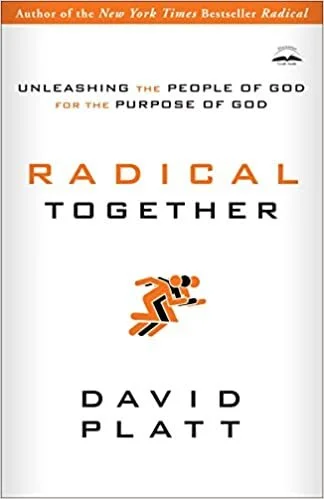Radical Together
Last fall I shared some thoughts on David Platt’s first book, Radical: Taking Back Your Faith From the American Dream. In the book, Platt urges readers to consider the ways in which the gospel is at odds with a materialistic, narcissistic American way of life, and to commit to living ‘radical’ lives for Christ.
He has since written a sequel called Radical Together: Unleashing the People of God for the Purpose of God. If you’ve read the first one (or if you’ve read John Piper’s Let the Nations be Glad or Don’t Waste Your Life, for that matter) it’s likely that nothing in Radical Together will come as a surprise. Rather, Platt takes the themes from Radical and explores the implications for congregations rather than individuals. He seeks to show “how a right understanding of the church fuels radical obedience among Christians.” Churches, he rightly argues, aren’t meant to be consumer-oriented bubbles; instead, each Christian is to be equipped for the work of the church both locally and globally. This is an important affirmation of the historic Christian belief in the “priesthood of all believers,” and a critique of what is too often the norm: inward facing churches, full of consumers of religious goods and services, administered by professionals.
Platt writes about the difficulty in letting go of good programs in order to channel a church’s resources and attention more purposely based on what we believe to be true about the mission of God in Scripture. In the case of the church he pastors in Birmingham, Alabama, that means a particular focus on northern India. While understandably encouraging Christians and churches to take seriously the great needs overseas, I wish he would have done more to affirm both local and global ministry as equally vital expressions of Christian faith. As it is, one is left with the impression that the further away our neighbors are, the more worthwhile it is to seek to love them. I know from experience that even in churches with vibrant global ministries, local ministry does not happen automatically, and I suspect Platt’s readers would be led to replace one kind of lopsided ministry with another. Also, though he affirms the importance of serving the poor, he particularly emphasizes sharing the gospel (verbally) with the “unreached.” Again, the influence of Piper is evident, though as a call for holistic ministry, I think it falls a bit short.
On the whole Platt’s book is a welcome critique of easy-breezy suburban religion and, not unlike Dietrich Bonhoeffer at a different time and place, it’s a new call for Christians to consider the cost of discipleship. And it’s a good reminder that “God doesn’t involve us in his global plan because he needs us; he involves us because he loves us.” It would simply be a shame to miss out.
I received this book for free from WaterBrook Multnomah Publishing Group for this review.
